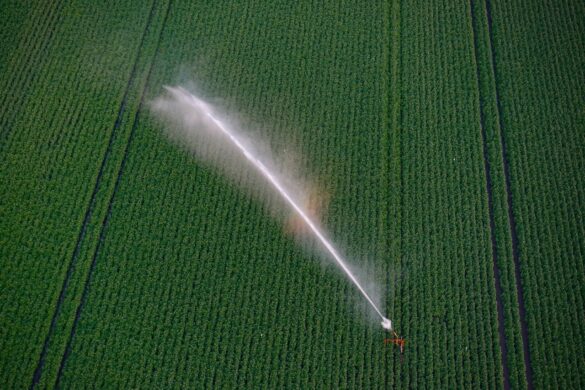Precision agriculture is emerging as a transformative force in Bangladesh’s farming sector, offering smart, efficient ways to grow crops while saving resources and protecting the environment. traditional farming methods rely heavily on chemical fertilisers and excessive irrigation, which waste resources and harm soil health. Bangladesh currently imports 80 percent of its nearly 7 million tonnes of fertiliser each year, and uses about 90 percent of groundwater for farming in water‑scarce regions like Rajshahi, Naogaon, Natore, Dinajpur, and Jashore. Experts now point to precision agriculture as a powerful alternative that could reduce water use by 30 to 40 percent and cut fertiliser waste by up to 25 percent, while raising yields by 15 to 25 percent. Precision farming tools such as soil moisture sensors, combined GPS-equipped machinery, drones, and remote sensing satellites now enable farmers to monitor field conditions closely. Soil sensors can track pH levels, nutrients, moisture, temperature, and electrical conductivity, helping farmers apply the right amount of water or fertiliser exactly where it’s needed. Drones and satellite imagery detect crop diseases, pest outbreaks or nutrient deficiencies early, allowing farmers to intervene swiftly and avoid widespread loss. These data-driven technologies are often paired with machine learning software and mobile advisory platforms. Such tools analyse soil and weather data to optimise irrigation and fertilisation, simplify decision-making, and reduce labour costs. The result: healthier soil, higher productivity, and lower environmental impact. For example, integrating alternative wetting and drying irrigation methods with precision tools can bring methane emissions down significantly, support climate resilience, and help farmers boost rice yields by up to 20 percent. Early pilot projects in Bangladesh have shown promising outcomes. Trials of smart irrigation and soil 7‑in‑1 sensor systems have improved water efficiency by roughly 30 percent, reduced fertiliser usage by 20 percent, and raised crop yields by around 15 percent. That translates into lower production costs and healthier fields.Stakeholders say success depends on stronger public‑private partnerships, farmer training, and targeted policy support. Local startups—including Aunkur, iFarmer and Drip Irrigation BD—are already providing IoT sensor services to farmers. Academic institutions and agricultural agencies are urged to invest more in research and to adapt technologies for Bangladesh’s unique conditions. Education and extension efforts can build technical capacity at village and upazila levels, helping smallholders adopt these tools affordably. Precision agriculture also creates pathways for higher‑skill jobs in data analysis, sensor maintenance, app development, and system integration, offering new hope for rural youth. Alongside digital advisory services and IoT‑based platforms, precision farming can generate demand for technicians, engineers, By embracing precision agriculture through strategic investment, education and innovation, Bangladesh has a real chance to boost productivity, conserve water and fertiliser, reduce environmental impacts, and move toward a sustainable, technology‑driven future in farming.
Precision Agriculture Set to Revolutionise Farmland and Boost Yields in Bangladesh
50


